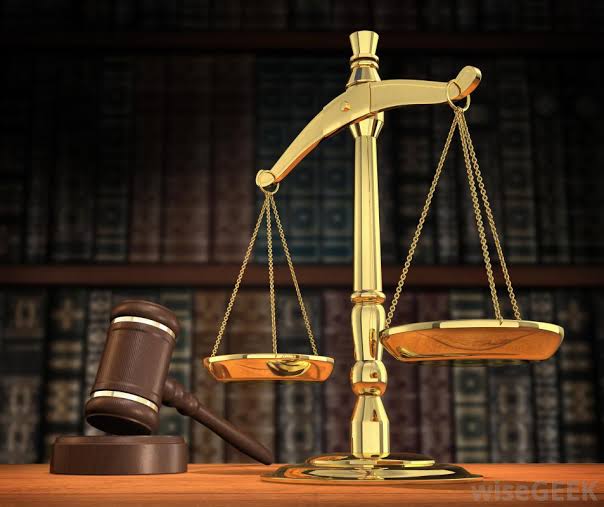
That is a very bad development and a direct attack and abolishment of the
Trias Politica principle wich is one of the key principles of a parliamentarian democracy in my point of view. It seems that this government is trying to restore some elements of the Pre-War
dictatorial Sanacja regime (1926-1939) and elements of
the Polish Peoples Republic (
Marxist-Leninist dictatorship of the proletariate, the professional one state party nomenklatura of the communist PZPR party).
A one party PiS state.
Solidarna Polska is a sort of
satellite party of PiS ( a brake away of PiS which now returned to the mother party), like
Stronnictwo Demokratyczne was a "satellite" party of the communist
Polish United Workers' Party (
PZPR).
 The Dutch symbol of justice, the legal system, is lady justice (Vrouwe Justitia)
The Dutch symbol of justice, the legal system, is lady justice (Vrouwe Justitia)The fundamental Democratic principle that
the state is divided into branches, each with
separate and
independent powers and
areas of responsibility so that the powers of one branch are not in conflict with the powers associated with the other branches are completely abandoned here. In the
trias politica principle of
the separation of powers the typical division of branches is into a
legislature, an
executive, and a
judiciary.
- The legislative power is attributed to an elected parliamentary body elected with a representative general election system (one person one vote).
- The executive power is attributed to the Council of Ministers. Ministers are appointed by the King, usually from the elected members of parliament (non-elected people can also be nominated). However, they must first resign from their elected seat.
- The judicial power is in the hands of the courts. Magistrates are nominated by the minister (on proposal from a Council of the Magistrates).
- Magistrates can be nominated to become a judge (sitting magistrates) or instructing judge (investigating judge) of Procureur (public prosecutor) (the standing magistrates).
- The executive branch of the government is responsible to provide the physical means to execute its role (infrastructure, staff, financial means).
- Judges and some other people cannot run for elected office while they are nominated to certain positions (military, police-officers, clergy, notaries, bailiffs).
Subsidiarity (vertical separation of powers):-Supranational directives (EU legislation) and international treaties are subjected to approval of the central state level (the central state level being Poland the nation state)
- The National level is composed of the following:
- A bicameral parliament (House of Representative and Senate) (in 2014 this will be a directly elected house and an indirectly appointed Senate of the regions)
- A national government (led by the Prime Minister and the ministers and secretaries of state)
-Tasked with overseeing justice, defense, foreign affairs, and social security, public health
- High Court, constitutional Court, Cassation Court
- The regional level is composed of the following:
- A voivodeship council (is tasked with regional provincial matters)
- A monocameral provincial council
- A nominated provincial governor assisted by deputees is tasked with provincial matters.
- Appellate Court, Assisses Court
- An intermediate level of Arrondissements subdivides the provinces
it has only an executive level with an arrondissemental commissars
- City and communal entities:
- A city or communal council
- A mayor, assisted by aldermen, is tasked with local matters.
- Magistrates Court, Correctional Court (three judges).
- Justice of the peace and Police Court judges (single judge courts)
Secularism (separation of state and religion):
- The President the head of state, holds no political authority and requires executive approval by a minister for every action and statement; he nominates the ministers but he does not choose them (his executive powers); he signs and decrees the laws voted in parliament (his legislative powers);
- The head of state is commander in chief of the military (in title only), politically the military depends of the Minister of Defense and the chiefs of staff are responsible towards parliament and take their orders from the Minister of Defense and the government;
- Certain functions are deemed incompatible and people must resign from their function if they want to assume responsibilities in another function (military commanders have never been government ministers, even during a war)

P.S.- I used the Belgian legal system and trias politica and adapted a little bit to the Polish situation, without the Belgian king and the Federal system with three autonomous member states and parliaments in one federal state (Flanders, Wallonia and the Brussels Region)